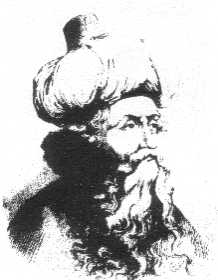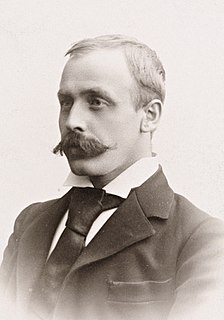A Quote by Carl Jung
How can anyone see straight when he does not see himself and the darkness he unconsciously carries with him into all his dealings?
Related Quotes
How many there are who still say, 'I want to see His shape, His image, His clothing, His sandals.' Behold, you do see Him, you touch Him, you eat Him! You want to see His clothing. He gives Himself to you, not just to be seen but to be touched, to be eaten, to be received within .... Let all of you be ardent, fervent, enthusiastic. If the Jews stood, shoes on, staff in hand, and eating in haste, how much more vigilant should you be. They were about to go to Palestine; ... you are about to go to heaven.
It makes him contemptible to be considered fickle, frivolous, effeminate, mean-spirited, irresolute, from all of which a prince should guard himself as from a rock; and he should endeavour to show in his actions greatness, courage, gravity, and fortitude; and in his private dealings with his subjects let him show that his judgments are irrevocable, and maintain himself in such reputation that no one can hope either to deceive him or to get round him.
Know that the science of unveiling has no end to it, for it consists in the journey of the intellect in the stations of Majesty, Beauty, Sublimeness, Grandeur, and Holiness. . . . He to whom the mysteries of La ilaha illa'llah are revealed draws near to God, and his worship of God becomes sincere. He does not turn to anyone but to Him, nor does he have hope in or fear other than Him, nor does he see harm or benefit except as coming from Him. He abandons whosoever is not He and rids himself of inward and outward associationism (shirk).
For here we are so blind and foolish that we never seek God until he, of his goodness, shows himself to us. It is when we do see something of him by his grace that we are stirred by that same grace to seek him, and with earnest longing to see still more of his blessedness. So I saw him and sought him; I had him and wanted him. It seems to me that this is and should be an experience common to us all.
I thought, He must forebear to reveal His power and glory by presenting Himself as Himself, and must be present only in the ordinary miracle of the existence of His creatures. Those who wish to see Him must see Him in the poor, the hungry, the hurt, the wordless creatures, the groaning and travailing beautiful world.
Munch writes poetry with color. He has taught himself to see the full potential of color in art His use of color is above all lyrical. He feels color and he reveals his feelings through colors; he does not see them in isolation. He does not just see yellow, red and blue and violet; he sees sorrow and screaming and melancholy and decay.
A man who finds himself among others is irritated because he does not know why he is not one of the others. In bed next to a girl he loves, he forgets that he does not know why he is himself instead of the body he touches. Without knowing it, he suffers from the mental darkness that keeps him from screaming that he himself is the girl who forgets his presence while shuddering in his arms.
Anyone who does not see the vanity of the world is very vain himself. So who does not see it, apart from young people whose lives are all noise, diversions, and thoughts for the future? But take away their diversion and you will see them bored to extinction. Then they feel their nullity without recognizing it, for nothing could be more wretched than to be intolerably depressed as soon as one is reduced to introspection with no means of diversion.
Some souls think that the Holy Spirit is very far away, far, far, up above. Actually he is, we might say, the divine Person who is most closely present to the creature. He accompanies him everywhere. He penetrates him with himself. He calls him, he protects him. He makes of him his living temple. He defends him. He helps him. He guards him from all his enemies. He is closer to him than his own soul. All the good a soul accomplishes, it carries out under his inspiration, in his light, by his grace and his help.
Man is like a tree. If you stand in front of a tree and watch it incessantly, to see how it grows, and to see how much it has grown, you will see nothing at all. But tend it at all times, prune the runners and keep it free of beetles and worms, and all in good time-it will come into its growth. It is the same with man: all that is necessary is for him to overcome his obstacles, and he will thrive and grow. But it is not right to examine him hour after hour to see how much has already been added to his stature.




































